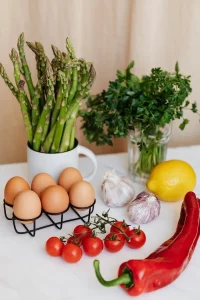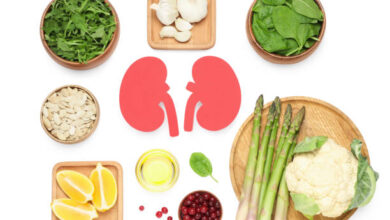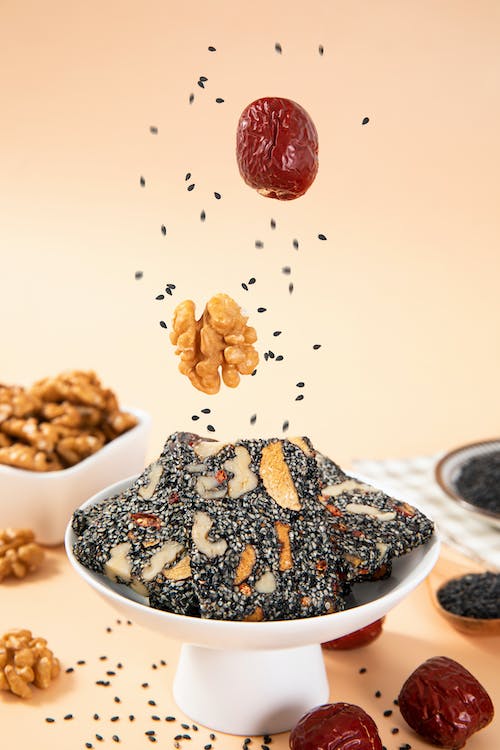Plant-Based Diets: Benefits, Tips, and Delicious Recipes
Plant-Based Diets: Benefits, Tips, and Delicious Recipes

The popularity of plant-based diets has been on the rise in recent years, and for good reason. A plant-based diet emphasizes whole, plant-derived foods while minimizing or excluding animal products. This eating pattern is not only beneficial for our health but also for the environment.
In this article, we will explore the various benefits of adopting a plant based diet, provide useful tips for transitioning, and offer some mouthwatering and nutritious plant-based recipes to get you started on your plant-powered journey.
I. Benefits of Plant-Based Diets
- Improved Heart Health: Plant-based diets are typically lower in saturated fats and cholesterol, making them heart-friendly. Studies have shown that adopting a plant-based diet can help lower blood pressure, reduce bad cholesterol levels, and decrease the risk of heart disease.
- Weight Management: Plant-based diets are often rich in fiber, which aids in digestion and helps you feel fuller for longer. As a result, it can be easier to manage weight and maintain a healthy body mass index (BMI).
- Reduced Risk of Chronic Diseases: Research suggests that a plant-based diet can lower the risk of developing chronic diseases such as type 2 diabetes, certain types of cancer, and hypertension.
- Increased Nutrient Intake: Fruits, vegetables, legumes, nuts, and seeds are packed with essential vitamins, minerals, and antioxidants that promote overall health and well-being.
- Better Digestive Health: The abundance of fiber in plant-based foods supports a healthy gut by promoting regular bowel movements and feeding beneficial gut bacteria.
II. Tips for Transitioning to a Plant-Based Diet
Transitioning to a plant-based diet doesn’t have to be overwhelming. Here are some tips to help you make the switch successfully:
- Take it Gradually: Start by incorporating more plant-based meals into your existing diet and gradually reducing animal products. This approach allows your taste buds and digestive system to adapt more easily.
- Explore New Foods: Be open to trying new fruits, vegetables, grains, and plant-based proteins. Experiment with various flavors and cooking techniques to find what suits your palate.
- Plan Balanced Meals: Ensure your plant-based meals are balanced and provide all the necessary nutrients. Include a variety of colorful vegetables, whole grains, protein-rich legumes, nuts, and seeds.
- Read Labels: Be mindful of processed foods labeled as “plant-based” or “vegan.” Some of these products may contain added sugars, unhealthy fats, or excessive sodium. Opt for whole, unprocessed foods as much as possible.
- Educate Yourself: Learn about plant-based nutrition to make informed choices and to address any concerns about meeting your dietary needs. Consider consulting a registered dietitian for personalized guidance.
- Embrace Healthy Fats: Include sources of healthy fats in your diet, such as avocados, nuts, seeds, and olive oil. These fats are essential for nutrient absorption and overall health.
- Plan for Dining Out: When eating at restaurants, check for plant-based options on the menu or request modifications to existing dishes. Many eateries now offer vegan or vegetarian choices.

III. plant based diet recipes
-
Chickpea and Vegetable Curry Ingredients:
- 1 can of chickpeas (rinsed and drained)
- 1 cup diced tomatoes
- 1 cup coconut milk
- 1 cup chopped spinach
- 1 onion (chopped)
- 2 cloves of garlic (minced)
- 1 tablespoon curry powder
- 1 teaspoon turmeric
- Salt and pepper to taste
- 2 tablespoons olive oil
- Cooked brown rice (for serving)
Instructions: a. In a large pan, sauté the chopped onion and garlic in olive oil until translucent. b. Add the curry powder, turmeric, salt, and pepper. Cook for another minute. c. Stir in the diced tomatoes and cook for a few minutes until they soften. d. Pour in the coconut milk and chickpeas. Simmer for 15-20 minutes, allowing the flavors to meld. e. Add the chopped spinach and cook until wilted. f. Serve the curry over cooked brown rice and enjoy!
-
Quinoa and Black Bean Salad Ingredients:
- 1 cup cooked quinoa
- 1 can of black beans (rinsed and drained)
- 1 red bell pepper (diced)
- 1 cup cherry tomatoes (halved)
- 1/4 cup chopped fresh cilantro
- 1/4 cup chopped red onion
- 1 avocado (diced)
- 2 tablespoons lime juice
- 1 tablespoon olive oil
- Salt and pepper to taste
Instructions: a. In a large bowl, combine the cooked quinoa, black beans, diced red bell pepper, cherry tomatoes, cilantro, and red onion. b. In a separate small bowl, whisk together the lime juice, olive oil, salt, and pepper to make the dressing. c. Pour the dressing over the quinoa mixture and toss to coat everything evenly. d. Gently fold in the diced avocado. e. Refrigerate the salad for at least 30 minutes before serving. Enjoy it as a refreshing and nutritious meal!
-
Roasted Vegetable Buddha Bowl Ingredients:
- 1 cup cooked quinoa
- 1 cup sweet potatoes (cut into cubes)
- 1 cup broccoli florets
- 1 cup cauliflower florets
- 1 cup sliced bell peppers
- 1 tablespoon olive oil
- 1 teaspoon paprika
- 1/2 teaspoon cumin
- Salt and pepper to taste
- Tahini dressing (optional)
Instructions: a. Preheat the oven to 425°F (220°C). b. Toss the sweet potato cubes, broccoli, cauliflower, and bell peppers with olive oil, paprika, cumin, salt, and pepper in a large bowl until evenly coated. c. Spread the vegetables on a baking sheet in a single layer. d. Roast the vegetables for 25-30 minutes or until they are tender and slightly caramelized, turning them halfway through. e. In a bowl, assemble the roasted vegetables on a bed of cooked quinoa. f. Drizzle with tahini dressing for extra flavor if desired. Enjoy the nourishing goodness of this colorful Buddha bowl!

Conclusion
Adopting a plant-based diet can bring numerous health benefits and contribute to a more sustainable and environmentally friendly way of eating. By taking it step by step, exploring new foods, and planning balanced meals, you can seamlessly transition to a plant-powered lifestyle. So, let these delicious and nutritious plant-based recipes be your guide as you embark on your journey toward a healthier and more compassionate way of eating. Bon appétit!





